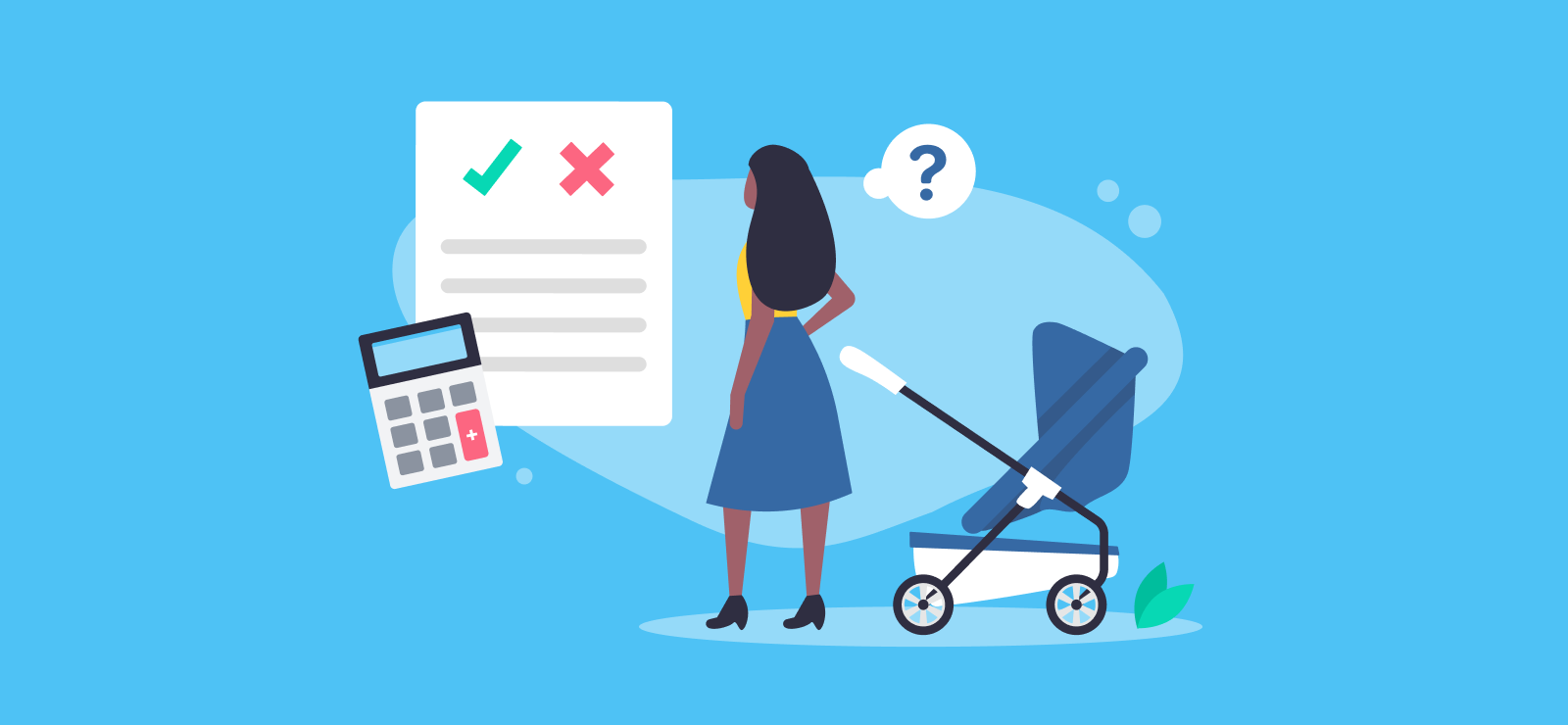

What Happens if I Pay Tax in Two Countries?
Paying tax can be tricky if you’re a UK tax resident who lives, works, or earns an income outside of the UK, or vice versa. You might find you’re taxed twice, both in the UK and in the country where you’re resident, unless the other country has a double taxation agreement (DTA) with the UK.
Will I be taxed twice?
If you live, work, or earn an income in more than one country, then you might be taxed twice. For example, people can end up paying tax twice if they:
- Work permanently in one country and live in another
- Live in one country and get a pension from another
- Have investments or property in one country and live in another
- Have been posted to another country temporarily
Fortunately, lots of governments recognise that paying tax twice on the same money is likely to put people off the idea of moving around, so they often set up double taxation agreements to minimise this.
What is a double taxation agreement (DTA)?
A double taxation agreement is a treaty set up between two countries to ensure people don’t end up paying tax twice on the same money.
These agreements aim to make sure someone contributes to the place they work (or where the money is generated), and can’t avoid tax by opting to be taxed in another country.
Which countries does the UK have a double taxation agreement with?
The UK has different agreements with separate countries rather than just applying a blanket approach, which can mean getting to grips with the rules can be tricky.
International taxation often depends on what your tax residency status is (or where you’re ‘domiciled’), and always depends upon the countries involved.
What is my tax residency status?
Whilst you may work in one country, it’s entirely possible you might be ‘domiciled’ in another for tax purposes. Tax residency is important because it governs where you pay tax, and how much it will be.
Working out your UK tax residency status
To work out your tax residency status for a particular tax year, you’ll need to work out how many days you were ‘resident’ in the UK during the year. A UK tax year starts on 6th April, and ends 5th April. Our tax residency flowchart goes through the process.
The table below shows HMRC’s ‘tests’ for tax residency status.
| You’re automatically a UK tax resident if… | You’re automatically non-resident if either… |
| You spent 183 days or more in the UK during the tax year | You spent fewer than 16 days in the UK (or 46 days if you have not been classed as a UK resident for the previous 3 tax years) |
| Your only home was in the UK, which you owned, rented, or lived in for at least 91 days in total, and you spent at least 30 days there in the tax year. | You work abroad full-time (averaging at least 35 hours a week) and spent fewer than 91 days in the UK, of which no more than 30 were spent working. |
What happens if there is a double tax treaty in place?
This depends on what the two countries agreed when the tax treaty was put in place, but they normally mean you can either:
- Apply for tax relief before you’re taxed (the agreement will explain how much relief is available)
- Request a refund after you’ve been taxed
What happens if the tax rate in one country is higher?
In most cases you’ll normally need to pay the higher rate of tax, although it’s always worth checking out the details. It’s also important to check the tax year dates for each country – the UK tax year starts 6th April, and ends 5th April.
Will I get the personal allowance on overseas income?
The tax-free personal allowance means you can earn £12,570 in a tax year before you start to pay tax on it. You’ll get the allowance automatically if you’re a British citizen, a citizen of the European Economic Area (EEA), or if you worked for the UK government during the tax year.
You might also be entitled to the allowance if the country you live in has a double taxation agreement with the UK which includes it.
Examples of how double taxation can work
The approach you take to double taxation is based on a number of things. To start with, the rules vary depending on the country you’re in, and whether you’re a private individual, a company, a partnership, or a charity.
They also depend on what your income is from, such as employment, dividends, or royalties. To really complicate things, even your occupation can change the rules. For instance, if you are an entertainer, sportsperson, or student, then the tax rules may be different.
In short, if you’re wondering how much you’ll be taxed, – it depends! You can find an A-Z list of the UK’s tax treaties online.
The temporary cross border worker
We have to be careful here, as the rules are different depending on the country you work in, and (often) the tax status of the company you’re working for. In general, workers who carry out their job overseas for periods of less than 60 days are taxed in their country of origin.
This makes sense, especially if you’re only going overseas to carry out a one-off job for a few days. Imagine setting up a tax account in each country in those circumstances!
The permanent cross border worker
Typically, a person working in a different tax jurisdiction will pay tax according to the rules where they work. For example, a UK worker who travels to Ireland to work for more than 60 days will pay tax and Pay Related Social Insurance (PRSI) in Ireland.
In the normal course of things, they would then have to pay UK income tax on the money they bring back into the country. But, because there is a double taxation agreement, they will receive a credit for any tax already paid depending on whether they’re domiciled in the UK for tax purposes.
It means someone who works in an area where tax is lower than the UK will pay part of their tax in the country of work (at the tax rate in that country), and then the rest in the UK.
The non-resident director of an Irish incorporated company
This person lives and works in the UK, but is a director of a limited or public company in Ireland. They get paid a director’s fee for holding the office.
They will have to pay tax and PRSI on the income in Ireland, even if they never actually visit. But again, they will be able to obtain a credit against their UK tax bill.
The person who lives in the UK but is non-domiciled for tax purposes
Your domicile can be determined based on the place your father considered home when you were born. There are special tax rules if you choose to be a non-domiciled UK resident.
In this case, if you have foreign income you can choose to be taxed using the remittance basis, meaning you’ll pay UK tax only when the money comes into the country.
You might still need to pay tax in the country of origin though, depending upon their tax laws. You might also pay a remittance charge, so it can be costly.
Another option is choose to be taxed on the arising basis. This is where tax is paid in the UK as the income is earned, wherever it is earned.
Tax is complicated! Learn more about our online accounting services for small businesses, and call 020 3355 4047 or get an instant online quote.
Want to learn more?
Subscribe to our newsletter to get accounting tips like this right to your inbox

Read more posts...

The Accountancy Partnership – Our Positive Reviews
16th February 2026We’re proud of our customers’ reviews here at The Accountancy Partnership The reviews we receive from our customers show how hard we…
Read More
Maternity Pay for Self-Employed People
15th February 2026As a self-employed person you might be eligible to get Maternity Allowance payments for up to 39 weeks. It’s different to Statutory…
Read More
National Insurance for the Self-Employed
14th February 2026If you work for your own self-employed business, then you may need to pay National Insurance on the profits that you earn….
Read MoreConfirm Transactions
The number of monthly transactions you have entered based on your turnover seem high. A transaction is one bookkeeping entry such as a sale, purchase, payment or receipt. Are you sure this is correct?
Please contact our sales team if you’re unsure
VAT Returns
It is unlikely you will need this service, unless you are voluntarily registered for VAT.
Are you sure this is correct?
Call us on 020 3355 4047 if you’re not sure.
MTD IT Quarterly Updates
Your final, end of year MTD Income Tax submission is included in your fee, without this add-on service.
We would recommend you submit the quarterly updates yourself using Pandle or alternative bookkeeping software.
However, if you would prefer us to submit these quarterly updates for you, there is an additional fee of £35.00 per month.
Call us on 020 3355 4047 if you’re not sure.
Bookkeeping
You will receive our bookkeeping software Pandle for free, as part of your package.
You can use this to complete your own bookkeeping, or we can provide a quote to complete your bookkeeping for you.
Please select and option below:
Call us on 020 3355 4047 if you’re not sure.

